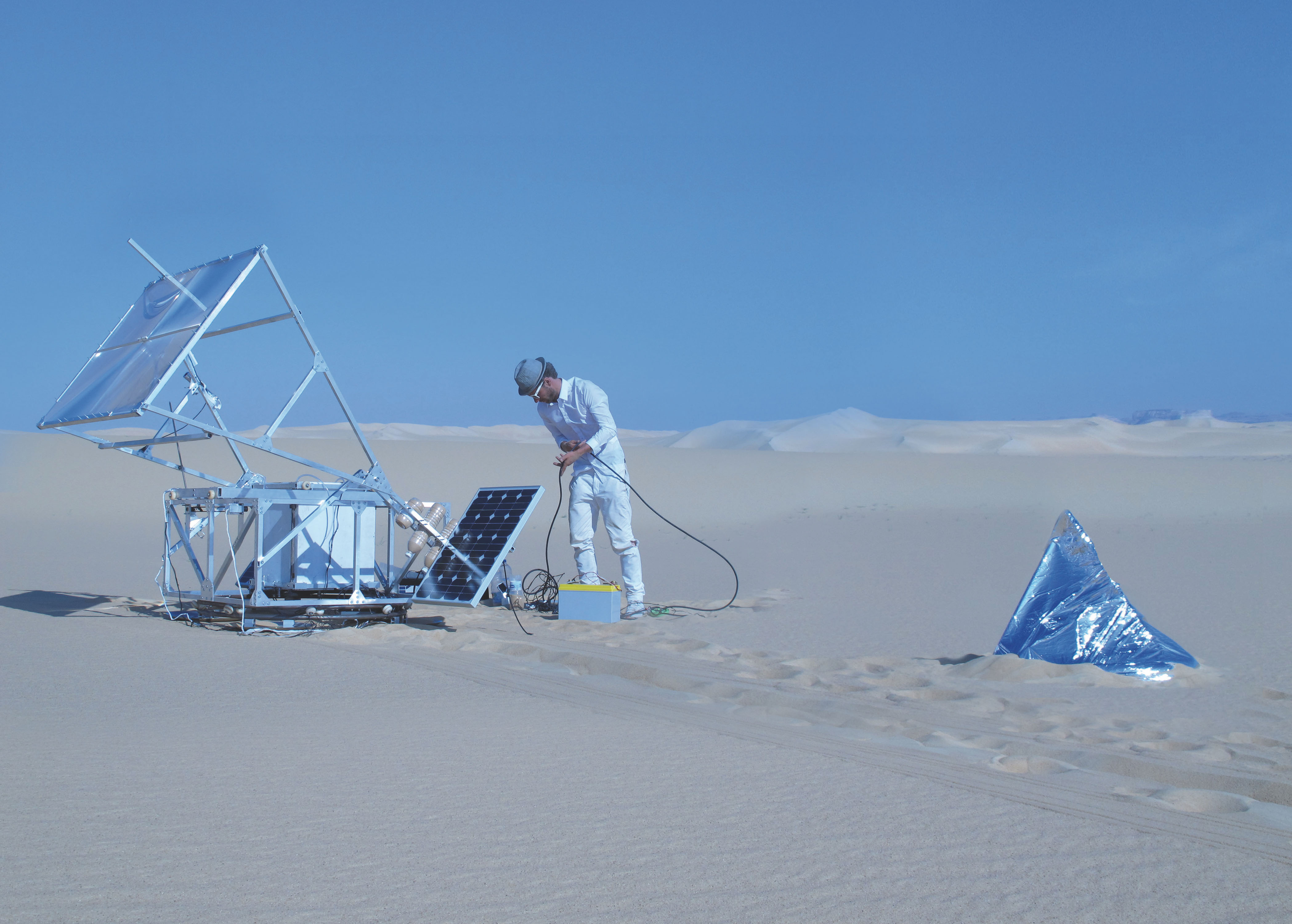Markus Kayser was born near Hannover, Germany in 1983. He studied 3D Furniture and Product Design at London Metropolitan University from 2004 – 2008 and continued 2009 with the study of Product Design at the Royal College of Art and gained his Master in 2011. Markus Kayser Studio was set up in London, UK in 2011.
From early works of furniture and lights in his father’s farm workshop through to today Markus Kayser developed an understanding of materials, processes and technologies which he sees as being key in combination with the natural given. He wants to engage by producing objects that one can relate to, that speak about something else other than just their utilitarian qualities. The layers to be discovered as well as one’s associations with objects interest him.
Experimentation plays a central part in developing his designs. Kayser’s recent work demonstrates the exploration of hybrid solutions linking technology and natural energy to show the great opportunities, to question current methodologies in manufacturing and to test new scenarios of production.
In his process it is important that behind the thorough research and the theory there must be a realistic proof of concept, which elucidates the real potential of a given subject. He tries to tell a story and to balance the seriousness with a sense of humour. This kind of storytelling makes his products as well as his experimental works digestible without losing its depths in content.
The aim of the newly formed Markus Kayser Studio is to engage in discussion about opportunities in the production of design involving new as well as forgotten processes and technologies. The studio draws from science, art and engineering and aims to blur gaps between seemingly separate fields.
Currently Markus Kayser is undertaking a research assistantship at the MIT Media Lab (Cambridge, USA). He has joined the Mediated Matter Group, which focusses on “how digital and fabrication technologies mediate between matter and environment to radically transform the design and construction of objects, buildings, and systems”.
